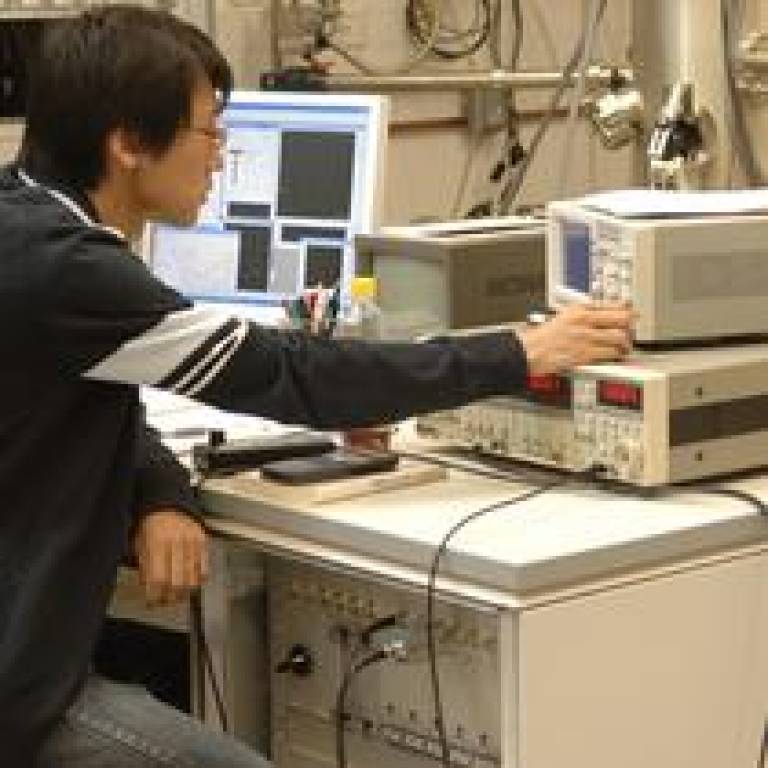Nanoscale research uses spin to revolutionise how computers work
14 August 2009
Links:
 london-nano.com/" target="_self">London Centre for Nanotechnology
london-nano.com/" target="_self">London Centre for Nanotechnology
The London Centre for Nanotechnology (LCN) - a joint venture between UCL and Imperial College London - is leading two international projects to develop radically new approaches to miniaturising computer systems, which would require less energy and make data storage completely stable, among other benefits.
The technology, known as 'spintronics', is based on exploiting the magnetic 'spin' properties of individual molecules or atoms as well as the electronic charges at this level in metals and other materials used in traditional electronics.
The LCN researchers will work with colleagues at Peking University and Tsinghua University to investigate molecular nanospintronics and with the University of Surrey to investigate silcon-based spintronics. The projects are both funded by the UK Engineering and Physical Sciences Research Council (EPSRC) and the Natural Science Foundation of China.
Professor Gabriel Aeppli, Director of the LCN, said: "These projects will take our collaborations with two top Chinese universities to new heights. China is an emerging powerhouse of advanced research and by collaborating with scientists from around the world, the LCN is driving nanotechnology forwards."
The researchers aim to reach an in-depth understanding of the nanoscale electronic, magnetic, and structural properties of novel spintronic systems made from ultra-small silicon and organic structures. Recent advances in scanning probe microscopy, pioneered by the team's members, will make the exploration of these systems at the single atom or molecule scale possible.
The two spintronics projects add to UCL's portfolio of collaborative projects with China. One recent example is the 'Fourth Generation Wireless Communication' project, under the EPSRC's UK-China Science Bridges Scheme, which will aim to facilitate scientific exchange, rapid technology development and the commercialisation of new wireless communication technologies. Another project, being carried out under the EPSRC's Collaborative Research with China on Cleaner Fossil Fuels Scheme, aims to develop multifunctional nanostructures that can effectively capture carbon dioxide and harmful pollutants in coal-fired power stations.
Image: A nanotechnology researcher at work
UCL context
The London Centre for Nanotechnology, is a UK-based, multidisciplinary research centre forming the bridge between the physical and biomedical sciences. It brings together two world leaders in nanotechnology - UCL and Imperial College London - to access the combined skills of multiple departments, including medicine, chemistry, physics, electrical and electronic engineering, biochemical engineering, materials and earth sciences, and two leading technology transfer offices.
Related news
Professor Sir Michael Pepper elected to The Royal Academy of Engineering
UCL offers cutting-edge MSc in Nanotechnology and Regenerative Medicine
 Close
Close

